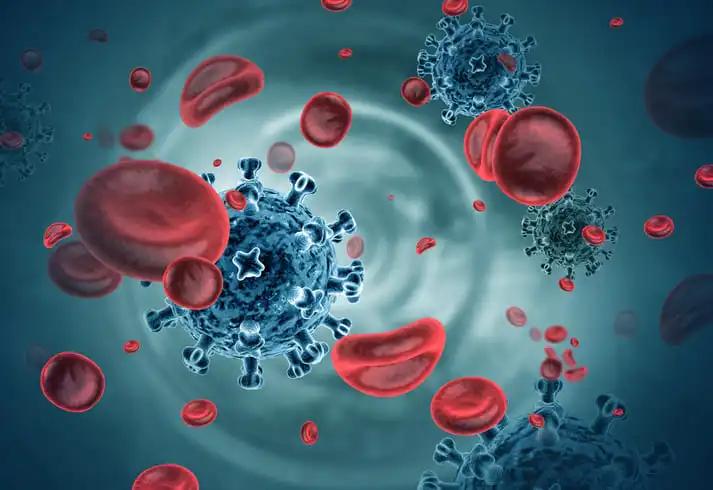KEY TAKEAWAYS
- The phase I trial aimed to investigate the safety and efficacy of cord blood-derived NK cells in children and young adults with recurrent or refractory pediatric solid tumors.
- Pts received a treatment to reduce WBC count, then NK cells were infused. Two doses were tested using a standard phase I trial design.
- The study found allogeneic NK cell therapy was safe for pediatric cancer pts.
Despite treatment, most patients (pts) with recurrent or refractory solid tumors have poor survival outcomes. Natural killer (NK) cells control cancer progression, metastasis, and survival. Researchers aimed to investigate the safety and effectiveness of cord blood-derived NK cells in children and young adults with recurrent or refractory pediatric solid tumors.
The study included pts aged 1-40. Cord blood donors had 4, 5, or 6/6 HLA matches. They expanded cord blood-derived NK cells using antigen-presenting cells over 14 days. A lymphodepleting regimen included cyclophosphamide (500 mg/m2/day) and etoposide (100 mg/m2/day) for 5 days (days -7 to -3), followed by 2 days of rest and a single NK cell infusion on Day 0. The study followed a standard 3+3 phase I trial design to assess two dose levels, with an expansion cohort at the maximum tolerated dose.
About 12 pts (median age 16 years) received NK cells infusions. Tumor types included osteosarcoma (n = 7), Ewing sarcoma (n = 4), and synovial sarcoma (n = 1). Three pts received NK cells at dose level 1 (5 X 107/Kg) and nine pts at dose level 2 (1 X108/Kg), which was determined to be the recommended Phase 2 dose. No dose-limiting toxicities were observed. Most adverse events (AEs) were grade 1 and 2 (fatigue, dizziness, nausea, and vomiting). The most frequently observed grade 3 and 4 AEs were leukopenia, neutropenia, lymphopenia, and thrombocytopenia. There were no signs of cytokine release syndrome or neurotoxicity were observed. Allogeneic NK cells were found in recipients’ peripheral blood, accounting for up to 100% of all NK cell populations and persisting for 9 days after infusion. Among the 9 pts assessed for tumor response, 3 (with osteosarcoma) showed stable disease, while 6 experienced disease progression.
The study found allogeneic NK cell immunotherapy showed safety in pediatric solid tumor pts. Enhancing efficacy may involve adjuvant therapy for persistence, stricter selection methods, and gene editing for improved alloreactivity against recipient tumors.
Source: https://ascopubs.org/doi/10.1200/JCO.2023.41.16_suppl.2546
Clinical Trial: https://classic.clinicaltrials.gov/ct2/show/NCT03420963
Sajad Khazal, Jonathan Benjamin Gill, Jessica Foglesong, Sireesha Yedururi, Ajaykumar Morani, Dawen Sui, Roland L. Bassett, Suzanne Gettys, Priti Tewari, Kris Mahadeo, Richard Greg Gorlick, Elizabeth J. Shpall, Katy Rezvani, and Najat C. Daw. DOI: 10.1200/JCO.2023.41.16_suppl.2546 Journal of Clinical Oncology 41, no. 16_suppl (June 01, 2023) 2546-2546.



